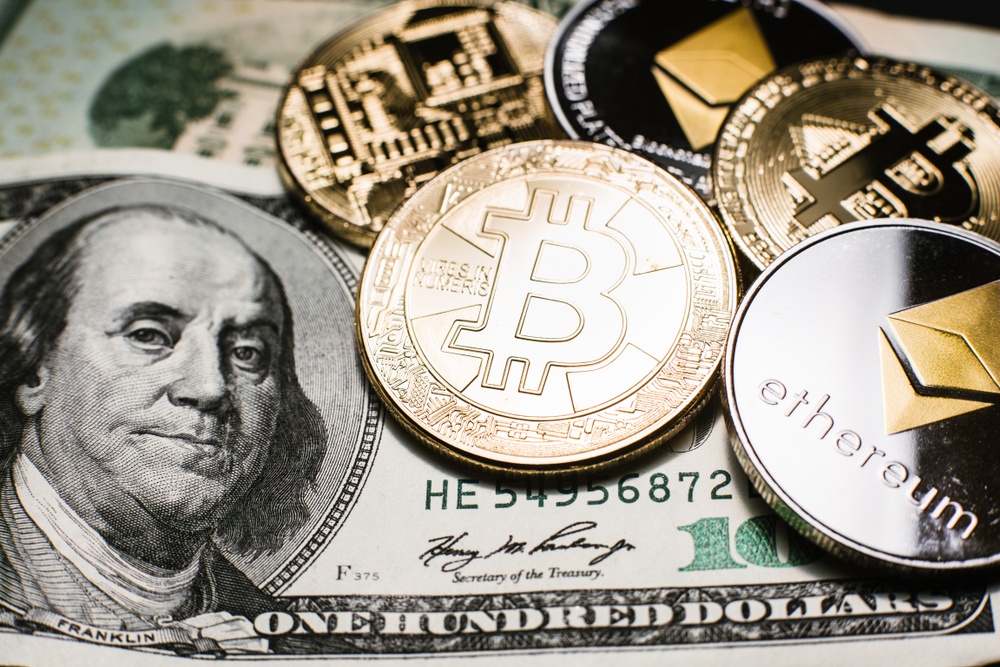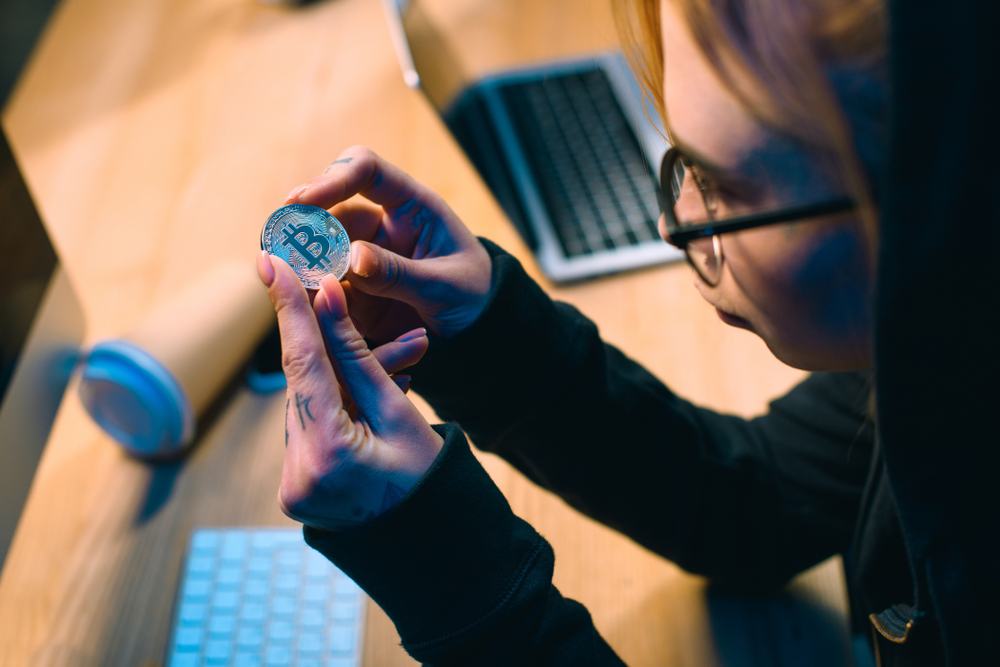How the Coronavirus Pandemic Altered Crypto Trends

From what I have learned so far, it is safe to say that the situation of things in the crypto market is looking less chaotic compared to the traditional financial terrain. Even though cryptocurrencies had performed better in the first two months of 2020, the price slump of other major markets points out that the crypto industry is doing just fine. While this is a given, I can’t help but notice some trends that have emerged as a result of the health crisis currently holding the world to ransom. In this article, I will identify some of these trends and explain their effects on the prospect of the crypto space in the coming months.
The Current State of The Crypto Market

In my last publication, I highlighted all of the times crypto had won and lost since 2020 began. Although there were times it seemed that all hope was lost, there were always reasons to continue to believe in the capacity of the technology to evade the traditional financial crisis unscathed. The latest show of crypto’s resilience in the face of conventional markets crash came to light a few days ago when the prices of digital assets generally defiled the slump of the US oil market. For now, cryptocurrencies have outperformed established assets, even as financial trends continue to highlight the essence of a decentralized form of storing value and transferring wealth.
Away from the prices of cryptocurrencies, the crypto industry has done enough to suggest that it can weather most of the impacts of the coronavirus pandemic. For one, a majority of crypto firms are not showing any sign of slowing down. These companies are using this opportunity to penetrate the mainstream landscape with mouthwatering services looking to optimize the efficiency of conventional systems. In essence, it is ever more likely that crypto firms will alter conventional systems, especially those that have faltered as a result of the stay-at-home orders and its aftereffect on the global financial market, and add elements of crypto technology.
Now that I have shown you a glimpse of the current state of the crypto economy, let’s explore those trends that are pushing these narratives.
What Are the Prevailing Trends Amid the Ongoing Health and Financial Crisis?
Crypto Gaming Activities Seem to Be on The High

As a result of the lockdown directive in place in major cities across the globe, people are increasingly looking for new ways to while away time. Therefore, it is not surprising that social media networks have reported a spike in activities in the last month or so. However, no one expected that this would rub off on the nascent crypto gaming landscape. According to stats from US-based crypto gaming company, Bling, there is a significant increase in the number of people using its products ever since the coronavirus became a full-blown pandemic.
In the report, Bling noted that it recorded a 50% increase in its user base in March. Thus, the gaming platform is now hosting 70,000 active users per day, and over 400,000 users visit the platform per month. More impressive is the fact that Bling’s flagship product, Bitcoin Blast, has surpassed the one million download milestone of Google Play Store.
Following this revelation, Bling’s CEO, Amy Wan, has linked the uptick in the company’s customer base to the stay-at-home order causing people to look for new ways to avoid boredom. She further revealed that the company has not only witnessed significant growth in its user base, but also in the average time they spend on their crypto gaming apps. Some of the countries contributing to Bling’s growth are the US, the Philippines, Brazil, and Indonesia. Wan stated:
“We think that this may be an opportunity for many folks who previously heard of Bitcoin but never got around to learning much about it to take that time to learn and collect some Bitcoin. Whereas many crypto companies focus on selling Bitcoin, our unique proposition is that we give it away for free through gameplay.”
There Is A Spike in Crypto Awareness

Earlier this month, The Economist released a report that showcased the present state of crypto awareness in both developing and developed countries. According to the report, crypto awareness in developing nations has risen to 92%, while the concept is encountering more resistance in developed countries with awareness reaching 75%. By putting these data together, the report concluded that the global survey average for digital currency awareness stood at 85%.
In response to this revelation, Antony Lewis, author of The Basics of Bitcoins and Blockchains: An Introduction to Cryptocurrencies and the Technology that Powers Them, explained that it is not surprising that some population groups prefer digital currency over physical cash. Lewis explained:
“Digital currencies are preferred over physical cash by some population groups. You need some fundamental skills and competencies to deal with digital currencies, and not everyone has these.”
In addition to this, there are indications that the interest in bitcoin has surged in the last two months. Apart from reports detailing the spike in retail demand for bitcoin on major crypto gateways like Coinbase, analysts have revealed that bitcoin-related searches have trended for the last few weeks. At the tail end of March, about the same time that the coronavirus fears heightened, there was an increase in searches for the phrase “Buy Bitcoin” on Google search.
An in-depth look at this trend revealed that a majority of these searches came from developing nations. Yassine Elmandjra, an analyst at Ark Invest, identified some of the countries with increased interest in Bitcoin in a Twitter thread. The tweet reads:
“The relative Google search interest for Bitcoin is approaching all-time highs in several emerging markets. Burkina Faso, which saw zero Bitcoin interest in late 2017, has seen an explosive rise this month.”
Other developing countries with a high number of internet users who searched for the term “Bitcoin” on Google include Peru, Nigeria, Guatemala, Kenya, Zambia, and Uruguay. More recently, Coindesk reported that Searches for “Bitcoin Halving” on Google has reached an all-time high. All these promising stats indicate a growing retail interest in bitcoin, which is a great development for the crypto space.
An Influx of The Crypto Gateways

It is safe to say that crypto firms are acting on reports that people are looking more likely to adopt crypto if the coronavirus health crisis persists. And so, they have begun to create improved crypto gateways and remove all of those processes that have often discouraged new entrants. One of the latest in the long list of developments that fit into this narrative is Tim Draper’s new WordPress crypto exchange plugin. The product, dubbed WordPress Crypto Exchange and launched through Draper Goren Holm venture studio, allows website owners to add crypto trading features to their sites.
However, this plugin is not a crypto exchange per se. Instead, it links websites to the API of an open-source decentralized exchange, Totle, to execute orders from WordPress websites. With this, website owners have an opportunity of earning more via the transaction fees imposed on each trade executed on their sites. Even though traders can facilitate trades directly from their personal wallets, there is little known about the security measures put in place to protect assets and users’ identities. What we know for sure is that the decision of the venture studio to target WordPress websites makes the plugin an important addition to the crypto space.
A Growing Disaffection Towards Fiat Currencies

At this point, a global economic recession is inevitable. People are coming to terms with the frailties of fiat currencies. In the name of bailing out distressed companies, countries are printing and distributing billions without considering hyperinflation or the long-term burden of debts. This might have spurred experts to re-emphasize that crypto will eventually replace fiat currencies. One of the financial experts who have made this known is Jim Bianco, president and macro strategist at Bianco Research. Bianco argued:
“To quote Winston Churchill, the dollar is the worst reserve currency we’ve ever devised, except for every other one, and so it benefits that there is no alternative. You’re not going to, you know, wave a wand and say the euro or the yen or the pound. I’ve argued that, in theory, the next reserve currency will be a crypto. I thought maybe Libra would do it, but then I thought for sure I was onto something because the first thing they did when they announced Libra was they dragged Marcus in front of Congress and ripped him a new one because they were afraid of what Libra represented.”
In support of this notion, Brian Armstrong, CEO and Co-founder of Coinbase, revealed in a tweet that there is a possibility that a fraction of Americans are using their stimulus check to buy bitcoin. He proved this claim via a chart showing that the percentage of people purchasing bitcoin worth $1,200 quadrupled in April.
Crypto Scam Is on The Rise

An unfortunate development in the crypto industry is the rise in digital asset scams. On the 13th of April, the FBI warned that the COVID-19 pandemic could increase crypto scams. The security agency advised Americans to be on the lookout for scams relating to blackmail attempts, work from home opportunities, investments, and health supplies and treatments. The document reads:
“People of all ages, including the elderly, are being victimized by criminals through cryptocurrency-related fraud schemes. Developments in cryptocurrency technology and an increasing number of businesses accepting it as payment have driven the growing popularity and accessibility of cryptocurrency. There are not only numerous virtual asset service providers online but also thousands of cryptocurrency kiosks located throughout the world which are exploited by criminals to facilitate their schemes. Many traditional financial crimes and money laundering schemes are now orchestrated via cryptocurrencies.”
Moreover, Chainalysis reiterated this stance while explaining that the PlusToken scam that shook the world in 2019 could still suppress the prices of cryptocurrencies. Kim Grauer, Chainalysis’s head of research, told Cointelegraph that the irresponsible liquidation of the remaining digital assets lost to the scam could cause the abrupt fall in prices. She stated:
“We found in the past that large inflows to exchanges, such as those from PlusToken last year, tend to increase the price volatility on exchanges. This problem can potentially be exacerbated by trading bots that pick up on those on-chain movements and execute trades, not to mention the highly leveraged positions on derivatives exchanges that can get liquidated rather quickly. But overall, prices tend to bounce back quickly from those one-off events.”
In light of this, there is a clamor for crypto exchanges to finetune their KYC procedures in order to identify illicit activities and censor assets obtained from Ponzi schemes. In response to this, Huobi, one of the two major crypto exchanges identified as a liquidation gateway for ill-gotten assets from the PlusToken scam, has decided to optimize its compliant ecosystem. The vice president of Huobi, Ciara Sun, explained that there is a need for industry players to share information for such an endeavor to be fully effective. Sun argued:
“While we may be able to identify illicit activities once they reach our exchanges and prevent their outflow, we can’t yet prevent illicit transactions that start outside of our platform. However, we believe that collaborative efforts among industry players, including but not limited to information sharing, are the key to success to create a safer friendly ecosystem for the crypto industry to grow.”
Another event highlighting the frail state of security in the crypto space took place in 2019 when hackers stole crypto worth $25 million from decentralized protocol, dForce. Although the hackers had since returned most of the stolen funds, there is every reason to believe that scammers are becoming aware of the loopholes of the industry’s increased push for DeFi and interest-generating applications. Besides, reports have warned crypto owners of the risks associated with investing in a crypto project, Antimatter Kingdom, which has allegedly raked in Bitcoin worth $11 million.
Final Thoughts
All the trends listed in this article points to the fact that crypto is slowly re-establishing its appeal in the mainstream landscape.
